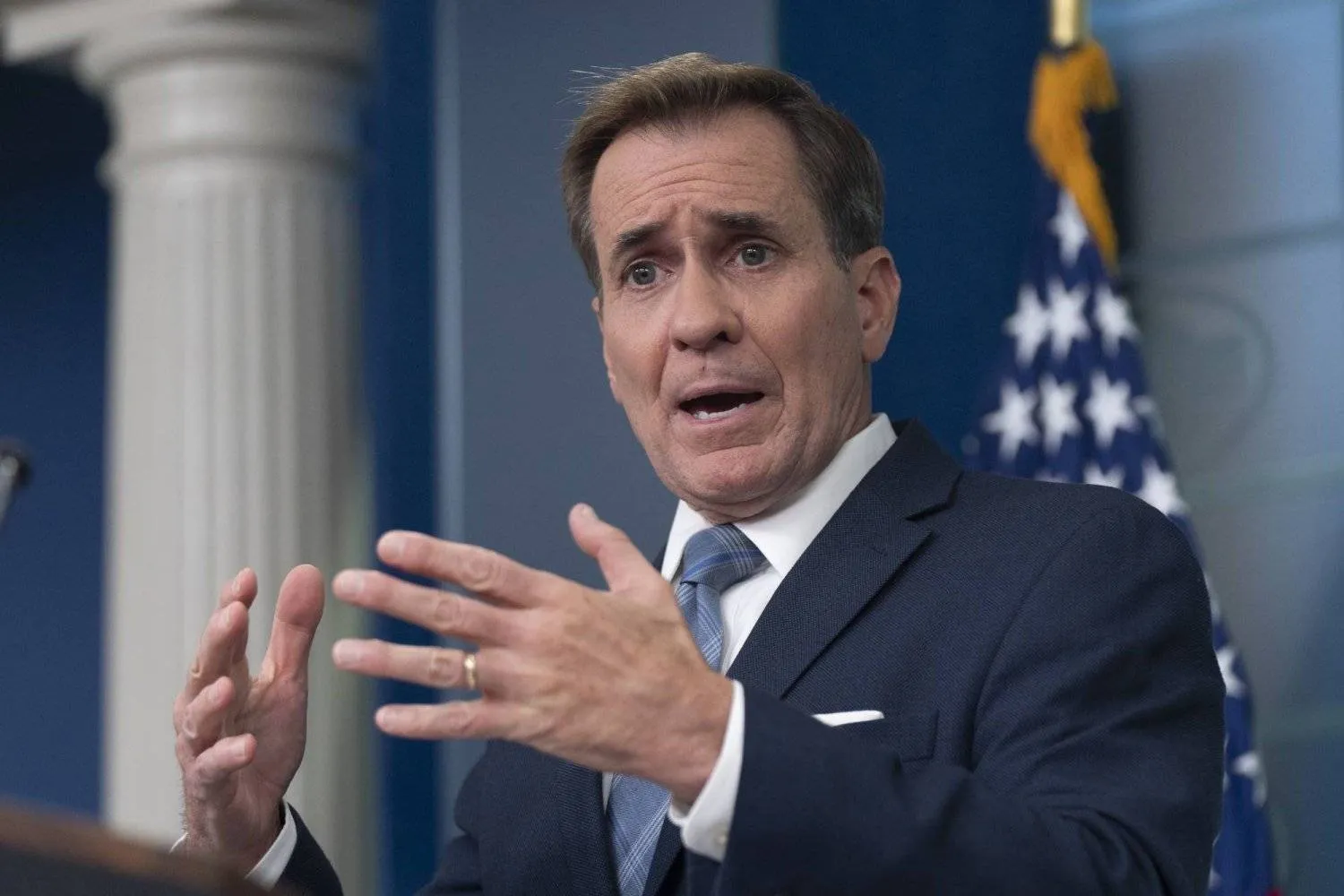White House national security spokesperson John Kirby stressed on Friday that the administration of President Joe Biden is consistently working to reach a deal for a ceasefire in Gaza and the release of the hostages, saying diplomacy remains the path to calm regional tensions, especially between Israel and Hezbollah.
Kirby acknowledged that mediators are “no closer to achieving that than we were even a week or so ago” but vowed that “ain’t nobody giving up.”
“We’re still going to keep the shoulders to the wheel,” he told reporters. “The president has directed his team to continue to try to find a way to see if we can get a proposal that both sides will agree to.”
Asked about a report earlier this week which alleged that Prime Minister Benjamin Netanyahu has consistently sabotaged efforts to reach a hostage release-ceasefire deal, Kirby said that he hasn’t seen the report by Israel’s Channel 12 television network, and therefore cannot comment on it. But he added that Hamas leader Yahya Sinwar “remains the main obstacle to pushing this forward.”
Kirby was also asked to comment on the decision by Secretary of State Antony Blinken to skip visiting Israel during his last trip to the region, where he held talks in Cairo, and the cancellation of Defense Secretary Lloyd Austin's visit to Israel next Monday.
He denied that Washington was trying to send a message to Israeli officials, saying Israel is well aware of Biden's position, and his administration supports Israel's efforts to defend itself.
Israel and Hezbollah
On Lebanon, Kirby said the US was not involved in the detonation of thousands of communication devices linked to Hezbollah across the country that killed 37 people and injured over 3,250 others.
“We were not involved in [Tuesday's] incidents or [Wednesday's] in any way,” he replied when asked to respond to the attacks.
He also declined to comment on whether senior administration officials had contacted Netanyahu or any Israeli officials about these explosions.
“We still believe there is time and space for a diplomatic solution” to the escalating tensions between Israel and Hezbollah.
“We think that this is the best way forward,” he said. “War is not inevitable up there at the Blue Line, and we’re going to continue to do everything we can to try to prevent it.”
Kirby also said: “We don't want to see a second front in this war opened up at the border with Lebanon, and everything we're doing is going to be involved in trying to prevent that outcome. As I also said earlier, there is no reason for an expanded military conflict in Lebanon to be inevitable.”
“There's still time and space for diplomacy to work, and we're going to continue to give it a shot, and that's where we are,” he added.









